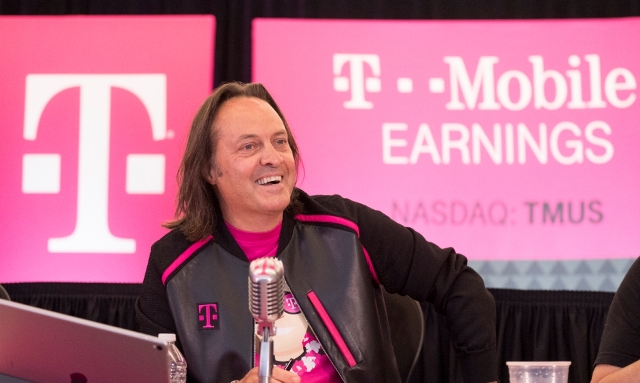T-Mobile US told the US Federal Communications Commission (FCC) on Monday it would not increase prices for three years, with few exceptions, if it gets approval to buy rival Sprint for $26 billion.

T-Mobile is a subsidiary of Deutsche Telekom, a telecom operator in Germany. Sprint is a subsidiary of SoftBank, a leading telecom service provider in Japan. Both Deutsche Telekom and SoftBank have announced they will not use Huawei equipment in their 5G networks in the future.
T-Mobile CEO John Legere in a letter to the FCC asked the US government to move forward expeditiously in reviewing the merger of the No. 3 and No. 4 wireless carriers, and attempted to allay fears the deal would mean higher prices.
US citizens will not a want a three-operator scenario after the merger between T-Mobile and Sprint. T-Mobile has been aggressively pushing the wireless tariffs down competing with AT&T and Verizon.
“While we are combining our networks over the next three years, T-Mobile is submitting to the commission a commitment that I stand behind — a commitment that New T-Mobile will make available the same or better rate plans for our services as those offered today by T-Mobile or Sprint,” Legere wrote in the letter.
Consumer advocates earlier said that since Sprint and T-Mobile have a big market share in pre-paid plans, poorest wireless customers were likely to be disproportionately hurt by the planned deal.
The pledge from T-Mobile comes a week before two committees in the House of Representatives — Energy and Commerce and Judiciary — hold a joint hearing to discuss the transaction. Both Legere and Sprint Chairman Marcelo Claure have agreed to testify during the hearing on Feb. 13.
T-Mobile in a separate government filing noted that while it would attempt to fend off price increases it may have to adjust rates to pass through costs like taxes or third-party fees that are not within the control of New T-Mobile.
The companies have also pledged to build customer care centers that will create up to 5,600 jobs and have said that they expected the merger to create more than 12,000 jobs to serve small towns and rural communities.
The merger proposal has won approval from a national security panel headed by the Treasury Department. It is undergoing an antitrust review by the Justice Department and the FCC must decide that the transaction is in the public interest.
